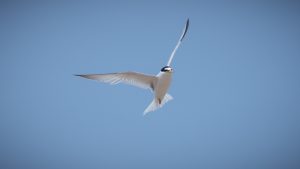Wildlife
ShoreSearch and SeaWatch provide opportunities for local people to engage with marine and coastal wildlife.
ShoreSearch, the Wildlife Trusts national scientific survey of the intertidal zone, has monitored four rocky shores in an area that stretches from the Tyne to the Tees, between April and September each year. The surveys identify and record the amazing animals and plants that call the North-East coastline home. This work has only been made possible by the support from over 206 local volunteers over a four-year period. The data collected from the surveys is shared with the North Sea Wildlife Trust, increasing our understanding of this unique but extreme habitat.
SeaScapes, in partnership with the SeaWatch Foundation, has trained over 245 volunteers to conduct independent effort-based land surveys of cetaceans along the Tyne to the Tees coastline. The data and local support, generated from the year-round surveys, has enabled SeaWatch and the Wildlife Trusts to increase their understandings of the whales, dolphins and porpoises off the North-East Coast, as the Wildlife Trusts strive to conserve and protect them.
Sea Birds
The Little Terns, a UK protected Schedule 1 listed species, have been monitored at the Seaton Carew site since 2020, when the colony relocated, in June 2020, from Crimdon Denemouth, due to egg predation and habitat disturbance.

SeaScapes has part funded the Little Tern site at Seaton Carew since 2021, employing wardens, day and night, to engage with members of the public, to protect the site from nighttime predators as well as daily, detailed data collection. The data generated and expertise gained from managing such a demanding site, on the main beach at Seaton Carew, is shared with the RSPB, Natural England and the Wildlife Trusts to help further conserve Little Terns around the UK.
A temporary picket fence erected during the nesting period from April to August surrounds the nest site and signage on the promenade helps to educate visitors about the Little Terns. Since 2021, 30 volunteer have spent 4441 hours helping to protect the Little Terns.
The breeding success of the Little Tern is closely linked to climate change and local predation. The unseasonal strong northeasterly winds and high tides and predation from kestrels and foxes, all pose a threat to nests and chicks. Breeding success for the colony has been steadily improving each year but future successes cannot be guaranteed to do variable environmental factors.
2021: 3 2022: 89 2023: 125 2024: 136 to 145
Ringed plovers, also Schedule 1 listed, take advantage of the fenced enclosure and have bred successfully in the fenced off area since 2021.


